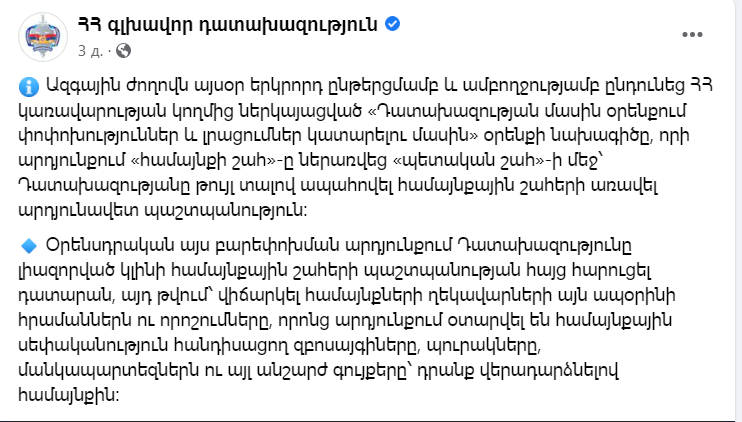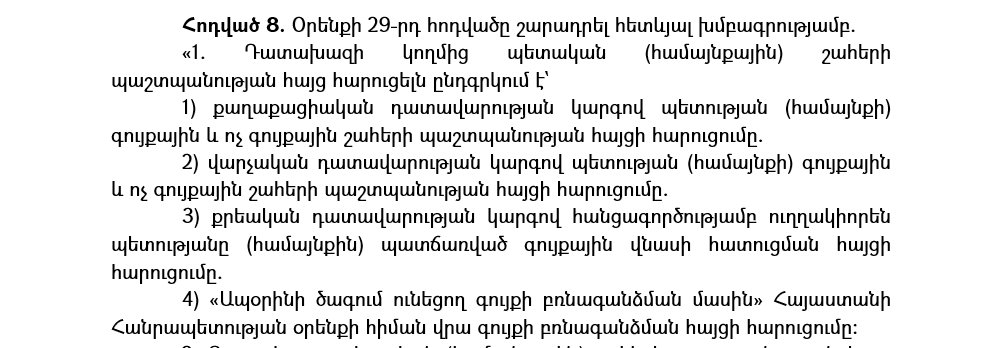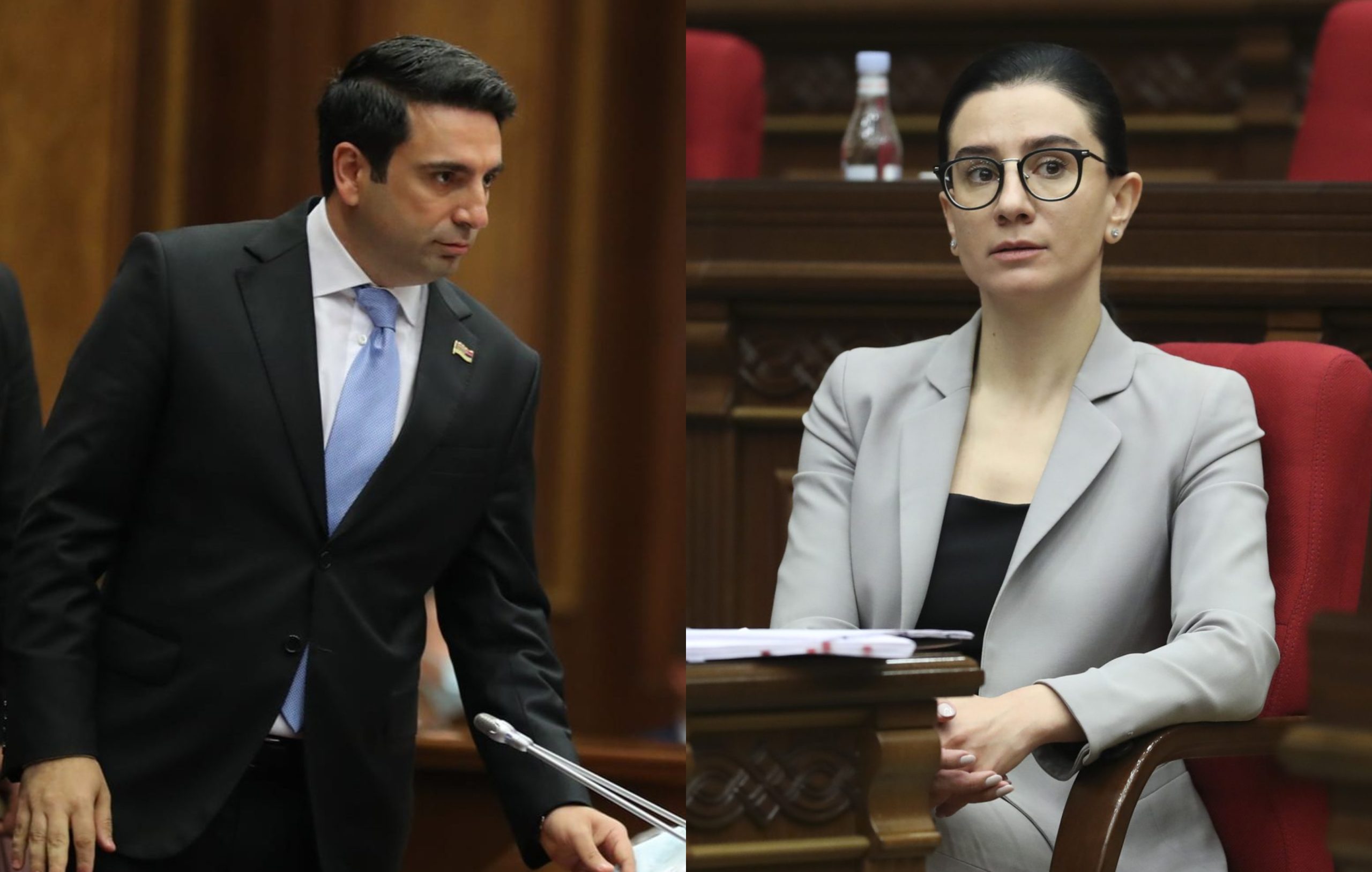On 1 March, the National Assembly in the 2nd reading and fully accepted the Draft Law “On making Amendments and Additions to the RA Law on Prosecution” presented by the Government, as a result of which the “community interest” was included in the “state interest”.
As a result of this legislative change, the prosecutor’s office will be authorized to initiate a lawsuit for the protection of community interests in court, including challenging the illegal orders and decisions of community heads, as a result of which community-owned parks, groves, kindergartens and other immovable properties were alienated, returning them to the community.
 At first glance, it may seem that the draft will have a positive impact in terms of revealing the crimes committed against community-owned properties and returning them to the community, but the adopted law will limit a number of norms established by the Constitution, which refer to the prosecutor’s office and local self-government.
At first glance, it may seem that the draft will have a positive impact in terms of revealing the crimes committed against community-owned properties and returning them to the community, but the adopted law will limit a number of norms established by the Constitution, which refer to the prosecutor’s office and local self-government.
The RA constitution also defines the exhaustive list of powers of the prosecutor’s office. Article 176, Part 3 of the Constitution states: “The Prosecutor’s Office shall, in exclusive cases and under the procedure prescribed by law, bring an action to court with regard to protection of state interests.”
At the same time, the Constitution clearly defines that “Local self-governance shall be the right and capacity of local self-government bodies to decide, under their own responsibility, on public issues of community importance – in the interests of residents of the community and in compliance with the Constitution and laws.” In addition, local self-government is exercised exclusively in communities.
From the above, it can be concluded that the changes made in the law “On Prosecution” contradict the provisions of local self-government established by the Constitution, because according to Article 9, local self-government must be guaranteed in the Republic of Armenia as one of the essential foundations of democracy.
The draft posted on the unified website for the publication of legal acts drafts states:

Article 8: Article 29 of the Law shall be drafted as follows:
“1. Initiating a state (community) lawsuit by the prosecutor includes:
1) Initiation of a claim for the protection of property and non-property
interests of the state (community) in the order pf civil proceedings.
2) Initiating a claim for the protection of property and non-property
interests of the state (community) in the order of administrative proceedings.
3) Initiation of a lawsuit for compensation of property damage caused directly
to the state (community) by a crime in the order of criminal proceedings.
4) Initiation of a claim for confiscation of property on the basis of
the Law of the Republic of Armenia “on Confiscation of Property of Illegal Origin”.
In addition, Article 2, Part 1 of the RA Constitution stipulates that “The people shall exercise their power through free elections, referenda, as well as through state and local self-government bodies and officials provided for by the Constitution”, and Article 6, Part 1 provides, “State and local self-government bodies and officials shall be entitled to perform only such actions for which they are authorized under the Constitution or laws.” From the systematic analysis of the aforementioned constitutional norms, it can be concluded that both of the concepts of state and local self-government are sovereign and one of them cannot be included in the other.
Summarizing, it should be noted that by the law adopted by the National Assembly, the community interest was included in the state interest, which implies a limitation of the independence and powers of local self-government bodies by granting the prosecutor’s office powers not provided for by the Constitution.
Therefore, the adopted law is unconstitutional and is not subject to signature by the RA President. It should be noted that the President of the Republic of Armenia can send it to the Constitutional Court to determine its compliance with the Constitution. Vahagn Khachaturyan has not yet signed the law adopted by the National Assembly.















